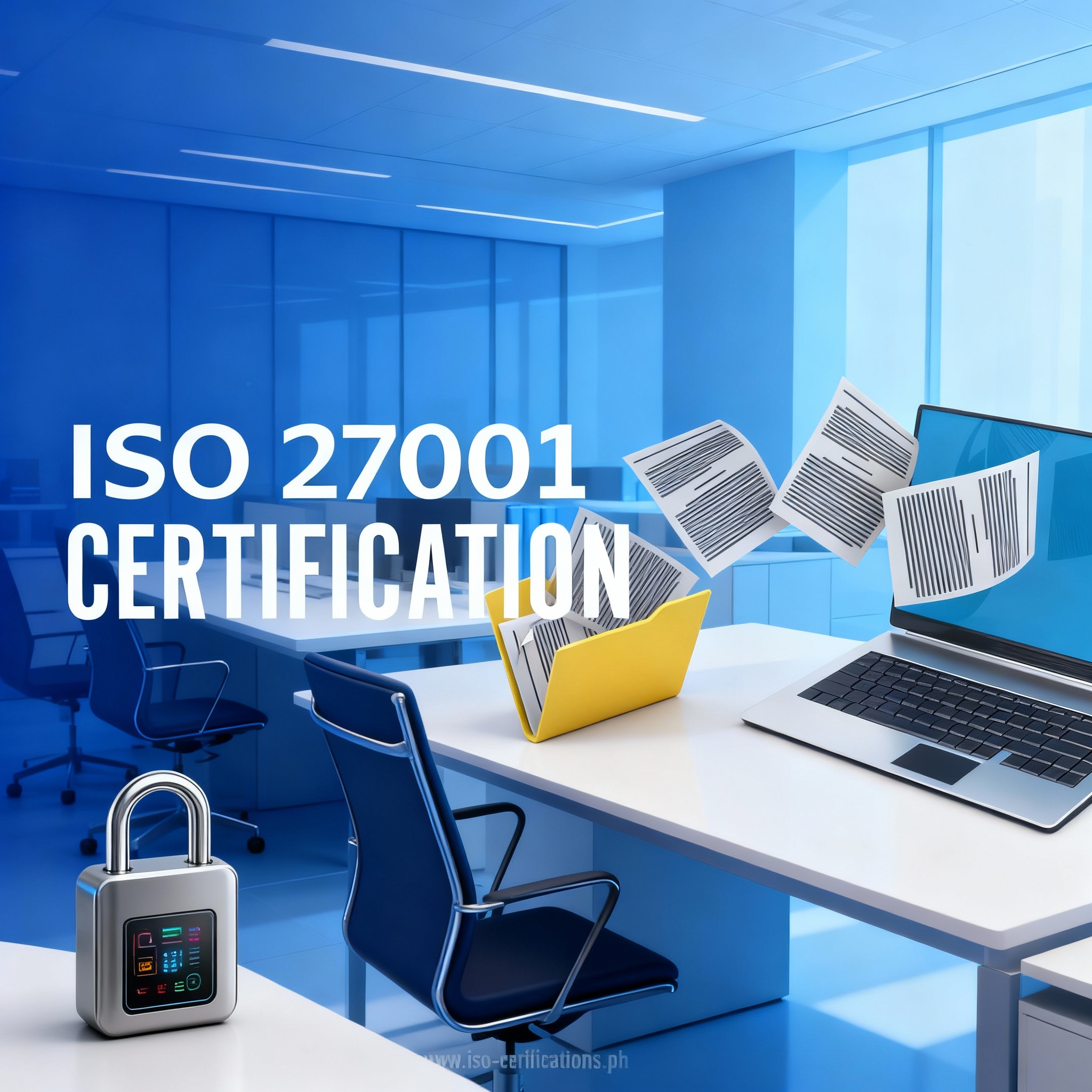The digital shift has transformed how businesses in the Philippines operate, but it has also made organizations more vulnerable to cyberattacks, data breaches, and compliance risks. With sensitive data such as customer records, financial transactions, and intellectual property constantly at risk, businesses must adopt international standards for information security. ISO 27001 certification provides that framework. But what exactly is ISO 27001, and does your company really need it? This blog will explore its definition, importance, and why Philippine businesses are increasingly pursuing certification to stay secure, compliant, and competitive.

What is ISO 27001?
ISO 27001 is an internationally recognized standard for Information Security Management Systems (ISMS), developed by the International Organization for Standardization (ISO) and the International Electrotechnical Commission (IEC). It provides a systematic framework for managing sensitive data, identifying risks, and implementing controls to prevent unauthorized access, loss, or misuse.
Key elements of ISO 27001 include:
-
Risk Assessment: Identifying potential vulnerabilities in systems and processes.
-
Policies and Procedures: Establishing clear security protocols for employees and stakeholders.
-
Access Controls: Restricting data access based on roles and responsibilities.
-
Incident Response: Preparing for and responding effectively to security breaches.
-
Continuous Improvement: Regular audits and updates to strengthen security measures.
In short, ISO 27001 helps organizations prove they can safeguard sensitive data responsibly. For companies in the Philippines—especially those in IT, BPO, finance, and healthcare—ISO 27001 certification is becoming a benchmark for trust and credibility.
Why is ISO 27001 Important in the Philippines?
1. Compliance with Local Laws
The Philippines has strengthened data protection regulations, particularly with the Data Privacy Act of 2012, which requires organizations to protect personal information. ISO 27001 certification aligns well with these requirements, giving businesses a structured path to compliance.
2. Building Customer Trust
Filipino consumers are becoming more cautious about how their personal data is used. Companies with ISO 27001 certification demonstrate transparency and responsibility, which builds stronger trust with clients and stakeholders.
3. Reducing Cybersecurity Risks
With cybercrime on the rise in Southeast Asia, Philippine businesses—especially those outsourcing IT or managing customer data—face growing threats. ISO 27001 helps identify risks early and mitigate them before they escalate.
4. Competitive Advantage in BPO and IT
The Philippines is a global leader in BPO and IT services. Many multinational clients now require ISO 27001 certification from their partners to ensure data security. Having the certification can open more international contracts.
5. Business Continuity
Natural disasters, power outages, and cyber incidents are common challenges in the Philippines. ISO 27001 helps businesses plan for disruptions, ensuring continuity of operations and minimizing losses.
Which Businesses in the Philippines Benefit Most?
Not every business may need ISO 27001 immediately, but those handling sensitive or large volumes of data stand to gain the most. These include:
-
BPOs and Call Centers: Handling international client data, from financial to personal information.
-
Banks and Financial Services: Protecting transactions, customer accounts, and regulatory data.
-
Healthcare Institutions: Safeguarding patient records and complying with both local and international healthcare data privacy laws.
-
E-commerce Platforms: Managing customer payment data and online transactions.
-
Government Agencies and Contractors: Where national security and citizen data are at stake.
Even SMEs in the Philippines can benefit, especially if they aspire to partner with larger corporations or expand internationally. Certification signals professionalism and reliability to potential partners and customers.
Conclusion
ISO 27001 certification is more than a compliance badge—it is a proactive step toward securing sensitive information, building customer confidence, and staying competitive in a data-driven economy. In the Philippines, where industries like BPO, IT, banking, and healthcare thrive on trust and data management, ISO 27001 is quickly becoming a necessity rather than an option. Whether you’re a startup seeking credibility or an established enterprise aiming to expand globally, certification strengthens your reputation and resilience. If your business handles customer or client data, the answer is clear: ISO 27001 certification is not just beneficial—it’s essential.
Q1: How long does it take to get ISO 27001 certified in the Philippines?
Certification typically takes 6–12 months, depending on the organization’s size, complexity, and current information security practices. Planning, implementation, internal audits, and corrective actions impact the timeline.
Q2: What are the main costs involved in ISO 27001 certification?
Costs include consultant fees, internal resource allocation, training, implementation of security controls, and the official certification audit. Prices vary based on business size and complexity.
Q3: Can small businesses or startups in the Philippines achieve ISO 27001 certification?
Yes. Even SMEs can implement ISO 27001. It scales to organizational size, helping startups build trust with clients and partners while securing sensitive data.
Q4: Is ISO 27001 certification mandatory in the Philippines?
No, it’s not legally mandatory. However, it aligns with the Data Privacy Act of 2012 and international standards, giving companies a competitive edge and reducing regulatory risks.
Q5: How often must a company maintain ISO 27001 certification?
Organizations undergo annual surveillance audits and a full re-certification audit every three years to ensure continuous compliance and improvement of the Information Security Management System (ISMS).




